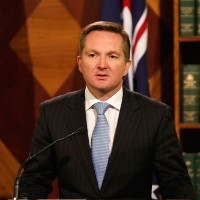

Shadow treasurer Chris Bowen has sided with a push from the country’s biggest businesses, penning an opinion article rejecting the introduction of an effects test to Australia’s competition law.
The change to Section 46 of the Competition and Consumer Act was one of 56 recommendations made by the Harper Review last month.
The recommended change would see companies with substantial market power, such as supermarket giants Coles and Woolworths, obligated to prove to the courts the pro-competitive and anti-competitive impact of their conduct, making it easy for smaller competitors to take legal action against an abuse of power.
In the wake of the review, big business leaders including Wesfarmers chief executive Richard Goyder have hit out against the possible addition of an effects test, arguing it would hamper competition rather than improve it.
In an opinion piece written this morning for the Australian Financial Review, Bowen sided with big business and took an opposing stance to that of Small Business Minister Bruce Billson, who strongly supports the introduction of an effects test, labelling the test as a “very dangerous economic policy”.
Bowen said he looked at and rejected the idea of an effects test when he was in power.
“I formed the view that it creates a hurdle that would cause firms to question their competitive instincts,” Bowen said.
“Competition law should be about protecting the competitive process, not competitors.”
“An effects test places a significant store of responsibility in our courts to interpret such a test in an economically sensible manner.”
Bowen argued the lack of a definitive defence against the effects test, which was unexpectedly removed from the final draft of the Harper Review, had created “a lawyers’ picnic”.
“The direction asks the court to distinguish between anti-competitive and pro-competitive conduct. While these concepts sound distinct, in practice the lines can be blurred,” said Bowen.
But Peter McDonald, competition law expert and partner at Allen & Overy, previously told SmartCompany the courts would not have any significant difficulty interpreting the new law, which is in line with legislation in Europe and the US.
Bowen ended the piece by calling on Treasurer Joe Hockey and the government to scrap the effects test as a priority.
“There is considerable concern within the Australian business community about the Abbott government seeking to take a populist path in pushing ahead with an effects test,” he said.
Peter Strong, chief executive of the Council of Small Business of Australia, this morning told SmartCompany he was “disappointed” but “not surprised” the Labor party had sided with the big end of town.
“Bowen is siding with big business and also big unions,” says Strong, who believes Labor’s stance likely comes from a push from the Shop Distributive and Allied Employees Association.
“The SDA is the richest union in Australia, all their members are from Coles and Woolies… They are afraid their business model, which is based on Coles and Woolworths, is under threat if Coles and Woolworths are under threat.”
Strong says Australia must address the issue of market domination by a few players in several sectors, including supermarkets, telecommunications and the airlines.
“When you’re dominant you need to be responsible for your behaviour and the effects test is one way of making people be responsible,” he adds.


COMMENTS
SmartCompany is committed to hosting lively discussions. Help us keep the conversation useful, interesting and welcoming. We aim to publish comments quickly in the interest of promoting robust conversation, but we’re a small team and we deploy filters to protect against legal risk. Occasionally your comment may be held up while it is being reviewed, but we’re working as fast as we can to keep the conversation rolling.
The SmartCompany comment section is members-only content. Please subscribe to leave a comment.
The SmartCompany comment section is members-only content. Please login to leave a comment.